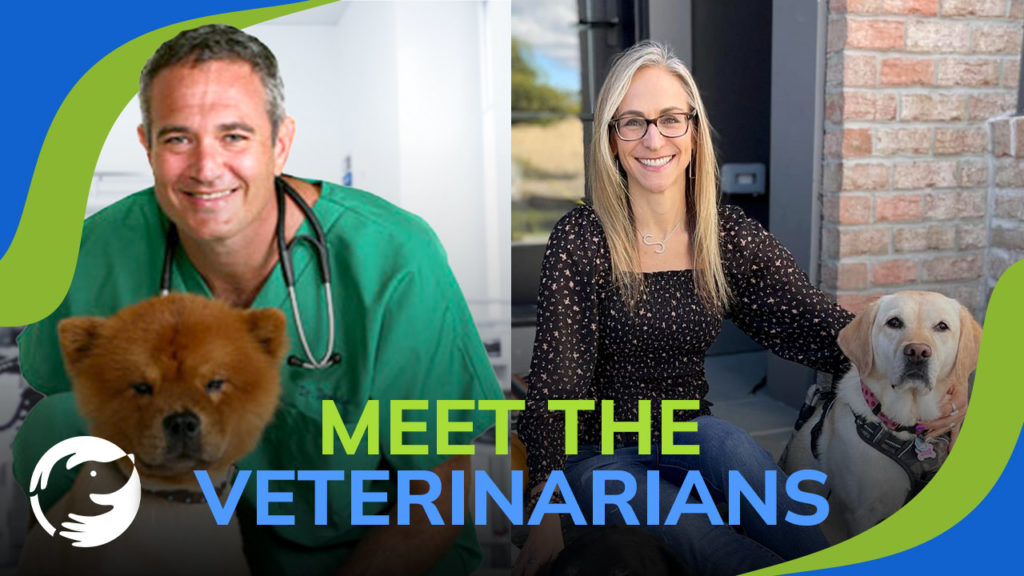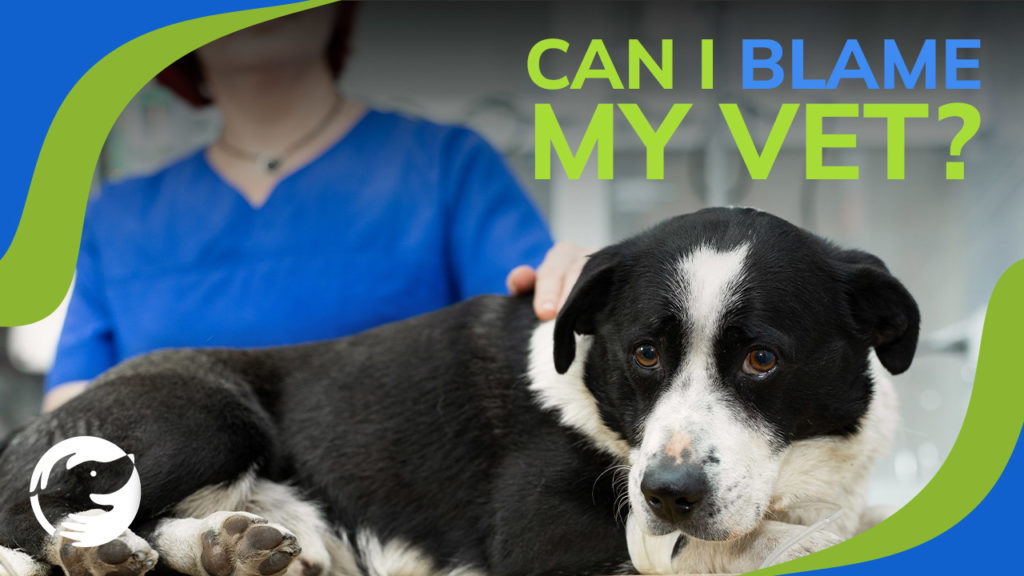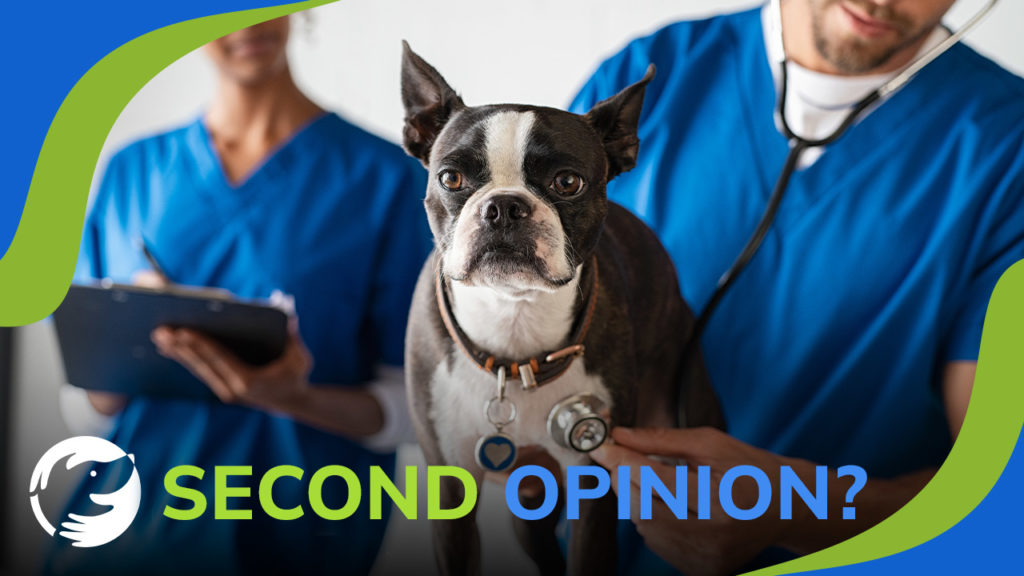
Welcome to Dog Cancer Answers- Meet the Veterinarians
Improve your dog's life span and quality of life with the Dog Cancer Survival Guide by Dr. Demian Dressler and Dr. Sue Ettinger.
Transcript of Welcome to Dog Cancer Answers- Meet the Veterinarians
James Jacobson: Welcome to Dog Cancer Answers, I’m James Jacobson. Cancer unfortunately is the number one killer of dogs around the world. And we put together this information series of dog cancer answers to help answer many of the questions that you may have. Be finding out that you dog have cancer. We have two distinguished Veterinarians with this, this are the authors, co-authors of the book, “The Dog Cancer Survival Guide”. We have Dr. Demian Dressler in Hawaii and Dr. Susan Ettinger in New York. Let’s find a little bit about these Veterinarians first and, I’ll go with you first in Hawaii Dr. Dressler. Tell us a little bit about yourself, you are known as the dog cancer Vet, how did that, how that started?
Dr Demian Dressler: Well, it’s started many years ago, I own a small animal practice with three doctors and one of the things that I noticed was that we had so many dogs coming through the door, here in Hawaii, which is a pretty healthy place to live that we see the diagnosis of cancer. As time went on, I begin to get frustrated because I felt that the treatment options were limited, so I started, embarked really on a really long journey trying to find any way that we can help dogs with cancer, improve their life span and improve their life quality and over many, many months and years of this research was able to mass quite a body of information that could help dogs with cancer and that’s what segregate into lead to the dog cancers survival guide.
James Jacobson: Of course you have the blog, dog cancer blog which is turn to by Veterinarians and dog lovers all over the world. Which you go to school?
Dr. Demian Dressler: I’m a Cornell University graduates and have been in practice for fourteen years and I probably log sixty to seventy hours a week in the veterinary practice or veterinary related work.
James Jacobson: Let’s turn to your co-author in New York, Dr. Susan Ettinger is a Veterinary oncologist, tell us a little bit about yourself and how you got started, Susan?
Dr. Susan Ettinger: I actually, am also a Cornell grad. I graduated which actually friends with Dr. Dressler in Vet school but after my internship I decided to specialize in oncology and, so I did a residency exclusively in metaco-oncology where you get a little training in radiation oncology and I’ve been, in Veterinary oncology practice I guess for about eight years now.
James Jacobson: Now, you both approach, dog cancer from slightly different perspectives that we say Dr. Ettinger you are an oncologist and you primarily focus on chemotherapy, is that right?
Dr. Susan Ettinger: Yeah! So, pretty much all I do day in and day out is deal with, and treat dogs and cats with cancer and that’s exclusively what I do. Most guardians bring their dogs and cats to me are already have a diagnoses of cancer. And so I, my specialty is medical oncology, meaning chemotherapy whether it’s oral or injectable chemotherapy, but it’s really my job to navigate the confusing world of oncology in general and that be, I work very closely with our surgeon and she specializes in oncologic surgery and also I work very closely with a radiation oncologist in, so it’s a very team oriented approach in managing our dogs.
James Jacobson: And Dr. Dressler in Hawaii, you don’t focus on chemotherapy, you’re not specifically a Veterinary oncologist. Tell us a little bit about that.
Dr. Demian Dressler: Well, that’s exactly right and Vets its turns out we actually don’t have a board certified oncologist like Dr. Ettinger here in Hawaii.
James Jacobson: Anywhere in the state?
Dr. Demian Dressler: Anywhere in the states. There are not that many oncologists to go around as it turns out. So, so we’re in a position here, the clonations are here are in a position where we have to, if we want to be using or get input from oncologist concerning chemotherapy, a radiation and or surgery this need to be done virtually on telephone or online, but we’re in the trenches which is an interesting thing because what it forces us to do is delve in to areas that we normally wouldn’t, because on the main land the continent in United States, there are specialists to turn to. So, in a way it increases the breadth of what we do simply out of necessity and in the area of chronic disease this is something that I’ve jumped into with both feet because I want it to see if, if we could do better, I want it to see if we could help dogs with cancer and their guardians in a more broader approach where we can deal with not only the emotional issues by providing certain tools that can help during the dog cancer journey for guardian for a human dealing with the dog cancer diagnosis, but also addresses all of the different areas that up to this point have been very disorganize and unexamined diet and supplements outside the box of therapeutics, and acupuncture, homeopathy and touch therapies are always different things that up to this point have not had a very critical evaluation to see okay what really works here in this “alternative compartment”, and what really does not. So, we combined now with Dr. Ettinger’s expertise and we have a very formidable arsenal for dealing with K9 cancer.
James Jacobson: In this entire videos series as entire Dog Cancer Answers series which you can view on dogcancer.tv on the internet is based impart on just some of the information that is in The Dog Cancer Survival Guide in your book. Dr. Ettinger as viewers go through and watch different videos in this series, is there anything that you would advised them to keep in mind?
Dr. Susan Ettinger: I think the reason that I got involved in this book as I wanted to add my expertise and my opinion to people who just got the heart-breaking diagnosis that their pet had cancer and I wanted them to hear in my perspective why chemotherapy may not be that bad and there’s a lot of the pre-conceive notions that we all, or think about with chemotherapy and how horrible and why would you ever do that to my pet that I wanted them just to hear of my perspective of why, of what it entails and so that’s why I really got involved, but it’s really been quite a journey for me and what I think is interesting is that, people may be surprise they may learn that chemotherapy is not as bad as they thought it would be and that holistic medicine might be something they wanna integrate into their dog’s chemotherapy protocol and so I really hope that people go into the book with an open mind because I’ve learned a lot by it being involved in this book and I hope Dr. Dressler has as well.
James Jacobson: Dr. Dressler, your thoughts about put the book in this video series.
Dr. Demian Dressler: Absolutely, you know, it’s been such a process really such an odyssey because you know, both Dr. Ettinger and myself, we both so immersed and what we do much more so I think than other Veterinarians at least in this particular slice of medicine which is the area of K9 cancer with her expertise every single day dealing with the conventional aspects and mine every single day dealing with the non-conventional aspects and it’s been very, very I think beneficial, not only to both of us as clonations but also to the end product, because what we’ve been able to do is to put out something that is very, very far reaching in scope in a much more I think in logical and kind of knots and bolt and also supportive way than perhaps that’s ever been done before.
James Jacobson: Well, I wanna thank both of you Veterinarians for bringing this book together and joining us for this video series already people around the world had been benefiting from it and I will continue do so, so… Dr. Ettinger in New York, Dr. Dressler in Hawaii, thank you so much…
Dr. Susan Ettinger: Thank you!
Dr. Demain Dressler: Thank you!
Topics
Did You Find This Helpful? Share It with Your Pack!
Use the buttons to share what you learned on social media, download a PDF, print this out, or email it to your veterinarian.



